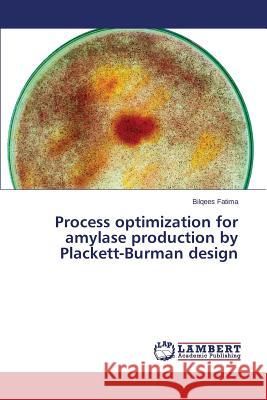Process optimization for amylase production by Plackett-Burman design » książka
Process optimization for amylase production by Plackett-Burman design
ISBN-13: 9783659611889 / Angielski / Miękka / 2014 / 88 str.
Sixteen different mould cultures viz. Aspergillus, Alternaria, Arthroderma, Trichoderma, Fusarium, Penicillium, Rhizopus and Chochliobolus were isolated from the soil samples collected from different localities of Doha (Qatar) by serial dilution method. The preliminary screening of isolates was done by selecting initial colonies showing relatively bigger zones of starch hydrolysis on nutrient agar medium by pour plate method. The isolates were then subjected to secondary screening by submerged fermentation. The product yield was analyzed in dependence of mycelial morphology, biomass level and protein contents. On the basis of kinetic variables, notably A. oryzae IIB-6 was found to be a hyper producer of GGH compared to A. kawachii IIB-2. A noticeable enhancement in enzyme activity of over 30% was observed when process parameters were further optimized using a 2-factorial Plackett-Burman design. The model terms were found to be highly significant (HS, p 0.05), indicating the potential utility of the culture (dof 3)."
Sixteen different mould cultures viz. Aspergillus, Alternaria, Arthroderma, Trichoderma, Fusarium, Penicillium, Rhizopus and Chochliobolus were isolated from the soil samples collected from different localities of Doha (Qatar) by serial dilution method. The preliminary screening of isolates was done by selecting initial colonies showing relatively bigger zones of starch hydrolysis on nutrient agar medium by pour plate method. The isolates were then subjected to secondary screening by submerged fermentation. The product yield was analyzed in dependence of mycelial morphology, biomass level and protein contents. On the basis of kinetic variables, notably A. oryzae IIB-6 was found to be a hyper producer of GGH compared to A. kawachii IIB-2. A noticeable enhancement in enzyme activity of over 30% was observed when process parameters were further optimized using a 2-factorial Plackett-Burman design. The model terms were found to be highly significant (HS, p≤0.05), indicating the potential utility of the culture (dof~3).











